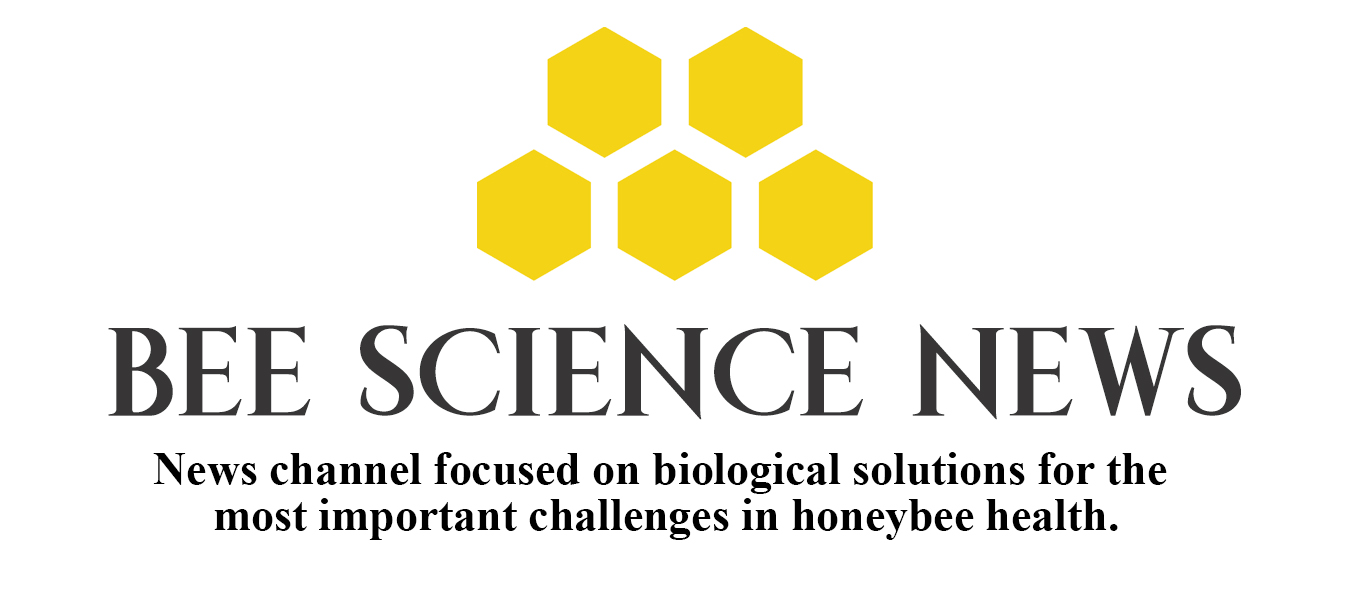
Soon after eclosion, adult honeybees are inoculated with core gut microbiome species, including those belonging to genera Bacillus and Lactobacillus. These commensal bacteria, in addition to known pathogens, represent a key variable in honey bee colony health.
Commensal bacteria are key
Bacilli and Lactobacilli inhibit honeybee pathogens and their presence is linked with good colony health, yet majority are susceptible to antimicrobial substances used in beekeeping.
Previous research showed that feeding probiotic containing Lactobacilli stimulates honeybee immune response, and Bacilli prolong honeybee lifespan and survival of Nosema challenge.
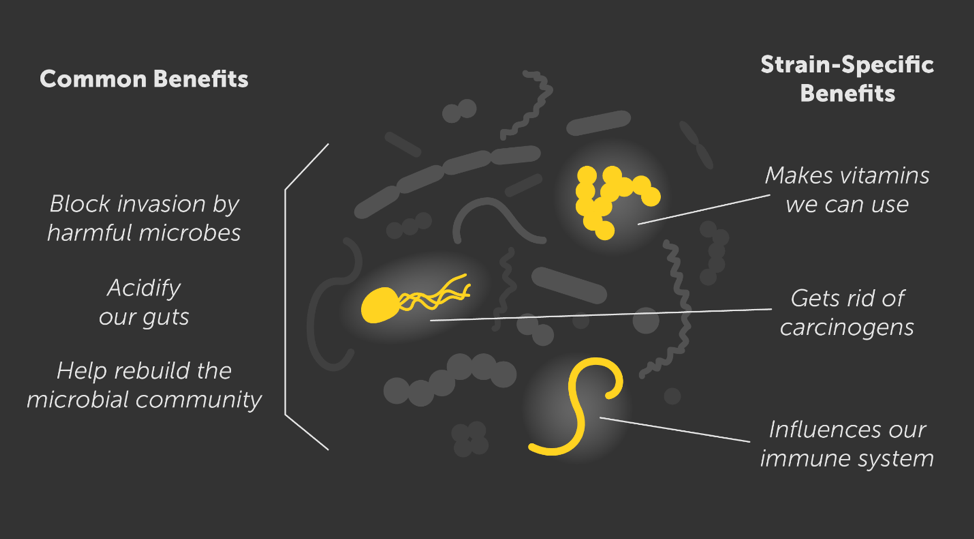
A field trial conducted by Strong Microbials in Michigan and Wisconsin tested probiotic containing Bacilli and Lactobacilli (direct-fed microbial, DFM) during spring and summer 2019. The goal of the study was to evaluate probiotic effect on naturally occurring levels (not intentionally infected) Nosema infection.
Two apiaries were used, 20 colonies per apiary were evaluated and randomly assigned to control group or DFM group in April. New hygienic Carniolan queens were installed in May. All colonies were managed equally, and did not receive any treatments except for Varroa mites.
Every two weeks DFM group received 2 spoon = 10 grams dry, inside the hive application of SuperDFM-HoneyBee™ (Strong Microbials Inc., Milwaukee, USA). Control group did not receive anything at the time (No treatment).
Field trial results
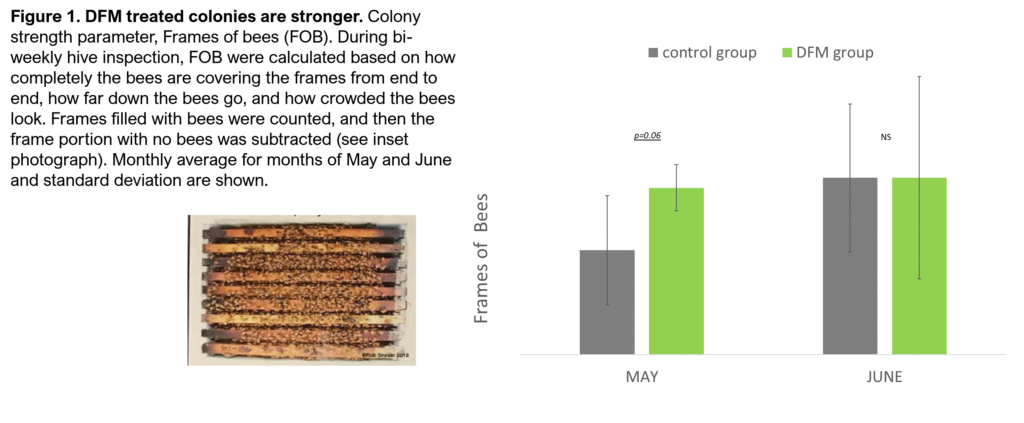
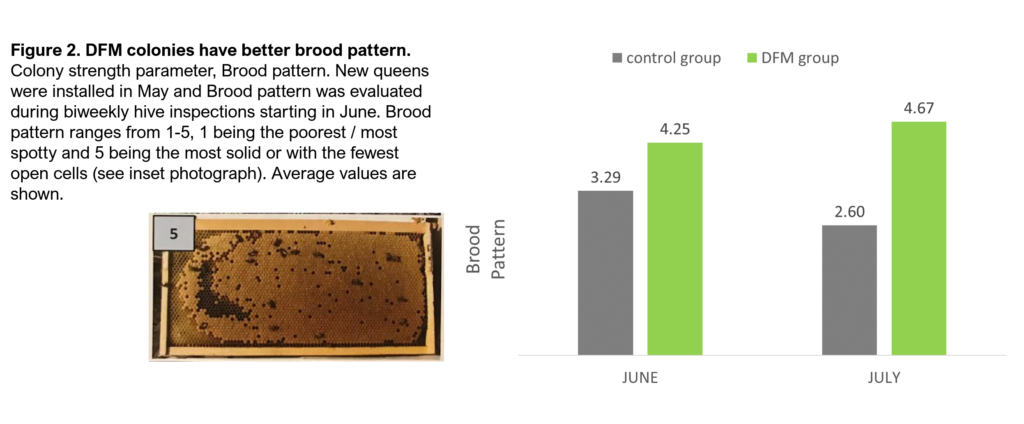
Probiotics significantly improved one colony health parameter, spring buildup, compared to negative control (FOB(May) p=0.06) and lowered Nosema spore counts in the field faster (Nosema May vs June, p=0.05). Naturally occurring Nosema spore counts in June were below 0.5 million spores/bee.
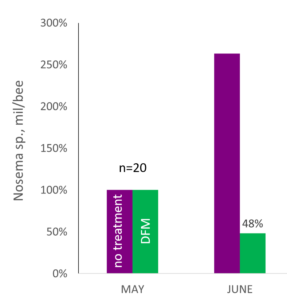
This research was conducted by citizen science beekeepers and small-scale beekeepers. Strong Microbials scientists presented the results at COLOSS meeting and Apimondia congress in 2019.
What’s next?
The intentions are good and the outlook is positive. The verdict’s still out on honeybee probiotics. Several research groups are conducting laboratory-scale (cage study) and applied field research, replicating these and other results and testing new formulations of probiotics. The goal of Strong Microbials right now is to understand common benefits of probiotics. Other groups are characterizing strain-specific benefits and product specifications.
For more information about SuperDFM, visit www.strongmicrobials.com
